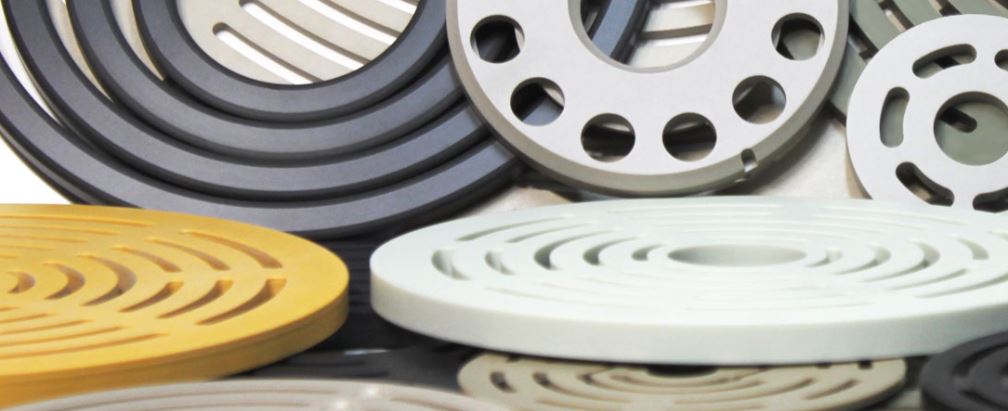Thermoplastic valves have gained prominence as versatile and dependable components in various industries. Their remarkable properties have made them a preferred choice in applications ranging from water treatment to chemical processing. In this comprehensive guide, we will delve into the essential properties of thermoplastic valve materials, shedding light on their significance and exploring the wide array of applications where they prove invaluable.
By gaining a deeper understanding of these key properties, you’ll be better equipped to make informed decisions regarding the use of thermoplastic valves in your specific industry. Whether you’re in the realm of water treatment, where chemical resistance is paramount, or involved in chemical processing, where corrosion protection is vital, this guide will equip you with the knowledge needed to optimize your fluid control systems and ensure their reliability and efficiency.
High Chemical Resistance
Thermoplastic valve materials excel in the domain of chemical resistance, showcasing an extraordinary ability to endure exposure to a wide spectrum of aggressive chemicals without succumbing to corrosion or degradation. This outstanding property finds immense value in industries where the handling of corrosive substances is a daily occurrence.
Whether it’s chemical processing plants, research laboratories, or other critical environments, thermoplastic valves stand as stalwart protectors, guaranteeing the secure and efficient conveyance of chemicals while maintaining their structural integrity and performance.
Impervious to Rust and Corrosion
In stark contrast to their metal counterparts, thermoplastic valve materials boast an innate resistance to rust and corrosion, rendering them impervious to these destructive forces. This unique property positions them as prime candidates for applications in moisture-laden or humid environments, where metal valves may deteriorate over time.
Industries like wastewater treatment, marine operations, and food processing derive substantial advantages from the exceptional longevity and unwavering reliability that thermoplastic valves offer in such challenging conditions.
Lightweight and Easy to Install
The lightweight nature of thermoplastic valve materials sets them apart, simplifying handling and installation processes when compared to their heavier metal counterparts. This inherent property not only reduces installation time but also cuts down on labor costs, making thermoplastic valves a compelling choice for industries aiming to achieve both efficiency and cost-effectiveness.
Furthermore, their lightweight characteristics impose minimal stress on piping systems, contributing to improved overall system longevity and reliability.
Exceptional Thermal Insulation
Thermoplastic valve materials excel in thermal insulation, effectively preserving stable temperatures within fluid control systems by preventing heat loss or transfer. This invaluable attribute finds exceptional relevance in industries where precise temperature control is paramount, such as the pharmaceutical and food and beverage sectors.
In these applications, thermoplastic valves serve as guardians of temperature-sensitive processes, guaranteeing the integrity of products and ensuring both quality and safety throughout production and distribution.
Low Friction and Smooth
Efficient fluid control systems rely on smooth flow and minimal friction to operate effectively. Thermoplastic valve materials stand out in this regard, boasting low friction coefficients that facilitate the seamless flow of fluids. This not only enhances overall system efficiency but also contributes to reduced energy consumption, particularly in applications where fluid flow optimization is a pivotal consideration.
By harnessing the advantages of thermoplastic valves, industries can streamline their processes and achieve both cost savings and enhanced performance.
High Impact Resistance
In demanding industrial environments, unforeseen impacts can occur during operation or maintenance activities. Thermoplastic valve materials are meticulously engineered to withstand high levels of impact without succumbing to cracking or breaking. This exceptional impact resistance guarantees that the valves maintain their structural integrity, making a significant contribution to the overall safety and reliability of the fluid control system.
Industries such as mining, construction, and agriculture find immense value in this durability, ensuring uninterrupted operations even in the face of unexpected challenges.
Ease of Maintenance
Effective maintenance is a vital component of any fluid control system’s lifespan. Thermoplastic valve materials simplify this process considerably, demanding minimal maintenance when compared to some alternative materials. Their innate resistance to corrosion and chemical degradation significantly reduces the frequency of inspections and replacements. This not only conserves valuable time and resources but also guarantees the long-term reliability and longevity of the valves, making them an optimal choice for industries seeking efficiency and cost-effectiveness.
Properties of Thermoplastic Conclusion
Thermoplastic valve materials hold a pivotal role within fluid control systems spanning multiple industries. Their standout properties, encompassing high chemical resistance, immunity to rust and corrosion, lightweight design, remarkable thermal insulation, low friction characteristics, and formidable impact resistance, render them indispensable assets. These materials not only simplify maintenance but also open the door to a diverse range of applications while guaranteeing the long-term reliability and consistency of fluid control systems.
Grasping these essential properties empowers industries to make informed decisions, enhancing their operational processes and facilitating the smooth and secure flow of fluids. By harnessing the advantages of thermoplastic valve materials, organizations can unlock cost-effective solutions and ensure the longevity of their fluid control systems, thus positioning themselves for success in their respective fields.
Contact KB Delta for information about compressor valve parts, compressor valves, and compressor valve repair kits.

